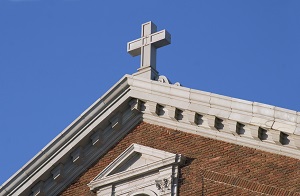 Preserving freedom of conscience is essential in the medical world. A bill recently passed by Congress, The Conscience Protection Act, protects this right to be free from coercion in ethical decisions, and allows doctors to refuse to perform an abortion if it goes against their religious principles.
Preserving freedom of conscience is essential in the medical world. A bill recently passed by Congress, The Conscience Protection Act, protects this right to be free from coercion in ethical decisions, and allows doctors to refuse to perform an abortion if it goes against their religious principles.
Ana Maria Dumitru, a medical student at Dartmouth, reflects on the importance of the right to protect conscience for doctors in the Public Discourse:
The Conscience Protection Act protects all health care providers and health care insurance companies from facing discrimination or fines for being pro-life. The bill states that the government cannot force health care professionals to perform or participate in abortions, and it cannot force health care providers such as churches and universities to cover abortion procedures through their insurance plans. In fact, the bill also explicitly states that this measure applies both ways: it includes measures to preserve the voluntary participation of individuals who want to provide or participate in abortions as well.
Why is the protection of conscience rights so significant? Each person has a conscience, and the development of the conscience hinges on personal formation. Our life experiences shape not only our memories but also our ability to make choices. As the ethical system of Aristotle teaches us, “We are what we repeatedly do. Excellence, then, is not an act, but a habit.” Ultimately, the shaping of our conscience requires true freedom: freedom from coercion and freedom for the pursuit of our fullest humanity, in the fullness of truth. The key to an excellent life, as our Founding Fathers recognized, comes through the safeguarding of all of our basic freedoms.
As an aspiring physician and scientist, I particularly recognize the critical importance of freedom of thought—and the freedom to act in accordance with our best thoughts. Scientific inquiry is the basis of medical advancement, and scientists must be free to generate and test hypotheses in order to make important discoveries. In a similar way, health care providers must be free to make recommendations based on their expertise, training, and learned experiences in order to provide the highest quality care to patients. That’s the whole point of undergoing such extensive training in order to become a health care provider. Each person who walks into a medical facility seeking health care needs to know that his or her provider is operating freely in pursuit of the best health interests of each patient.
The Conscience Protection Act does nothing to repeal or restrict abortion, but it does protect doctors from being implicit in what they may consciously determine to be a grave sin.
The Conscience Protection Act is significant because it sends a message to the entire nation that our freedom of conscience and religious freedom are protected and valued. It serves as a promise from our legislators to the people, a promise that the United States of America really is the land of the free and home of those brave enough to stand up for what they believe in. By voting to pass this bill, Congress would acknowledge that people like me, pro-life students in academia, are just as free to oppose abortion as our pro-choice counterparts are to support it, and that no one can force us to violate our genuinely held beliefs.
We should laud this act and push for the right for professionals to have freedom of conscience in all instances when they may be called upon to perform a morally questionable deed.



